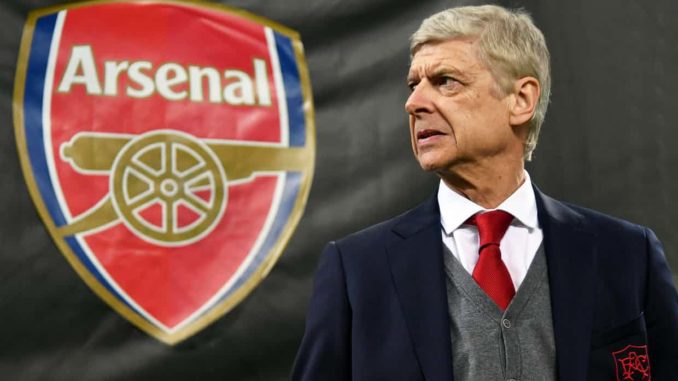
The monarchy aside, Britain doesn’t really do longevity these days. The nation of “keep calm and carry on” and of “until death do us part” has often, it appears, given way to a land of attention deficit and the seductive thrill of quick fixes.
No part of public life exemplifies this more clearly than professional football management. The average lifespan of a Premier League boss now stands at just over a year. At the beginning of this season, Crystal Palace’s Frank de Boer set a new record by losing his job after five matches. All of which makes Arsène Wenger’s 22 seasons and 1,229 games in charge of Arsenal a modern miracle of persistence (in the same span, Chelsea have gone through 19 bosses).
Wenger’s decision to call time on that £8m-a-year association last week could at least be presented as a final typically crafty bit of strategy. It was, perhaps, the last possible moment in which he could leave on his own terms. Measured in league position, this will be Wenger’s worst ever performance – Arsenal seem likely to finish sixth. But there is still the chance of the single achievement that has eluded the French coach in his long career – he may yet add a European trophy, albeit the second-string Europa League, to a cabinet that boasts three Premier League titles and a remarkable seven FA Cups. As with any true sportsman, he will like the fact that his leaving remains in the balance between bang and whimper.
Either way, that last act will not disguise the fact that Wenger’s legacy goes way beyond trophies. Almost unknown when he arrived in north London in 1996, he inspirationally transformed not only Arsenal’s hard-bitten style, but also the idea of what football might be in England. More than any other individual, he imagined the Premier League as the extraordinary global drama that it has become.
Born in the ultimate no-man’s-land of Alsace, Wenger did much to create football that no longer recognised borders. He intuitively integrated different nationalities into his Arsenal team; not only Europeans but, crucially, players of African heritage.
With the application of groundbreaking sports science and a will to win matched only by his great rival, Alex Ferguson, his best teams married strength of purpose with an exhilarating freedom of expression. “The professor” described his sense of that task in terms that sounded wonderfully alien to the “up and at ’em” traditions of the English game: “My never-ending struggle in this business is to release what is beautiful in man.”
That devotion to principled virtue – he favours the word “integrity” – in a shifting world awash with money, inevitably proved both Wenger’s triumph and his downfall. The certainty of his aesthetic vision of what football might be reached its high point with his unbeaten “invincibles” season in 2004. After that, as with any self-styled tragic hero, his purity of purpose began to look like a fatal flaw. No audiences are as restlessly demanding as modern football fans. Although reason dictates that only one Premier League team can triumph, and economics shows that it is invariably the club with the deepest pockets, merely consistent high achievement invariably translates on the phone-ins as “a lack of ambition”.
Wenger’s singular efforts to “release what is beautiful” have more often in recent years unleashed what is ugly in a section of Arsenal’s supporters – their former messiah has been subject to predictable tides of personal abuse on and offline. Wenger’s response has been a mix of superhuman intransigence and an occasional raised Gallic eyebrow at the extremes of English anger. He has no doubt known for a while that the end was coming – but also that history argues that his detractors should be careful what they wished for.
END

Be the first to comment